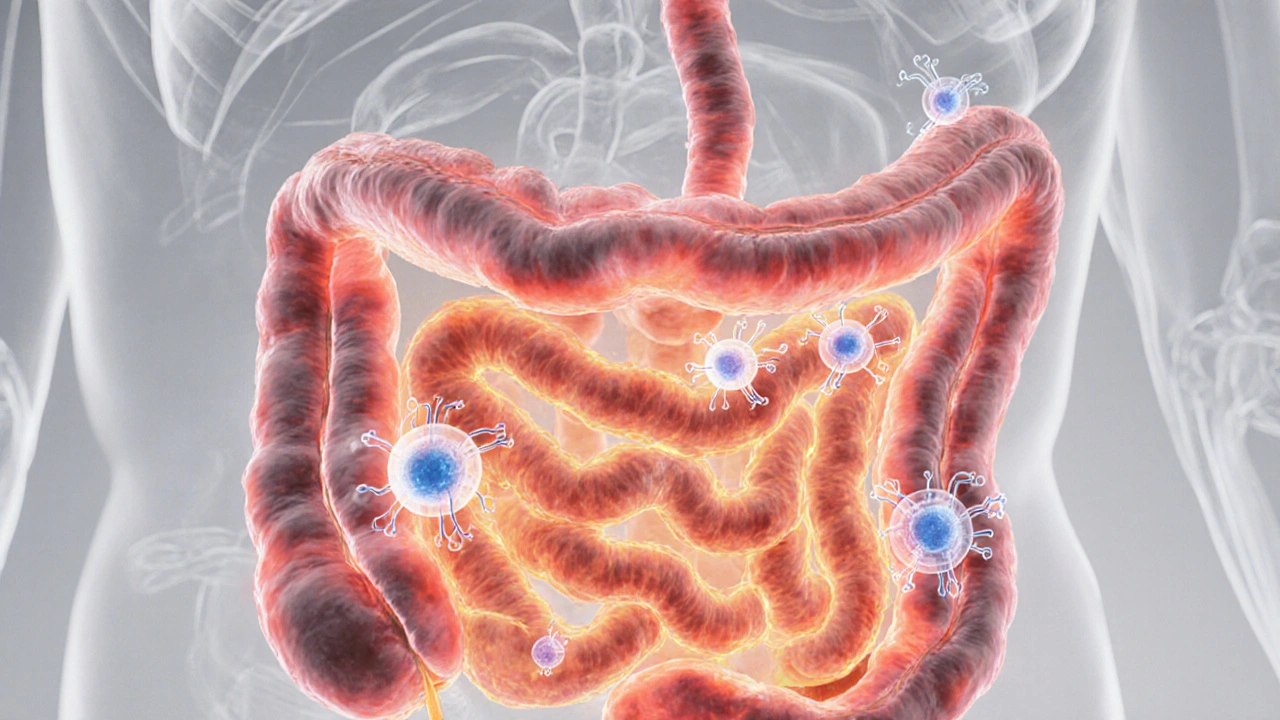Diet for Crohn’s Disease: What Works and What to Avoid
Living with Crohn's means paying attention to what you eat every day. The right foods can ease pain, keep you energized, and reduce flare‑ups. The wrong choices can trigger cramping, diarrhea, and fatigue. Below you’ll find real‑world advice that fits most lifestyles, plus a few simple meal ideas to get you started.
Key foods that soothe the gut
First, focus on low‑fiber, easy‑to‑digest items when symptoms flare. White rice, ripe bananas, and well‑cooked carrots are gentle on the lining and provide quick energy. Lean proteins like skinless chicken, turkey, or scrambled eggs give you the building blocks you need without adding extra fat.
If you tolerate dairy, try lactose‑free milk or plain Greek yogurt. The probiotics in yogurt can help balance gut bacteria, which is a plus for many with IBD. If dairy is a trigger, switch to fortified almond or oat milk for calcium and vitamin D.
Healthy fats are also important. A spoonful of olive oil, a few slices of avocado, or a handful of walnuts can calm inflammation. Just keep portions modest—fat can be hard to absorb during a flare.
Tips to keep flare‑ups at bay
Stay hydrated. Diarrhea and malabsorption can deplete fluids fast, so sip water, herbal tea, or an oral rehydration solution throughout the day.
Eat small, regular meals instead of big plates. Your gut handles frequent, modest portions better than occasional overloads. Aim for three to five modest meals and a snack if you need extra calories.
Limit high‑fiber raw veggies, nuts, seeds, and popcorn when you’re in a flare. These foods can aggravate the gut wall. Once you’re feeling better, re‑introduce them slowly and watch how you react.
Watch out for common triggers: caffeine, alcohol, and spicy foods can worsen symptoms for many people. Keep a simple food diary for a week—note what you eat and how you feel. Patterns often pop up quickly.
Consider a low‑FODMAP approach if bloating is a big issue. Foods high in fermentable carbs (like onions, garlic, and certain fruits) can cause gas. A short trial of low‑FODMAP meals, under a dietitian’s guidance, may reveal hidden culprits.
Finally, talk to a registered dietitian who knows IBD. They can tailor a plan that meets your nutritional needs, helps you maintain weight, and fits your personal preferences.
Remember, there’s no one‑size‑fits‑all diet for Crohn’s. Your body will give you clues—listen, adjust, and keep experimenting until you find the routine that lets you feel your best.

Crohn's Disease Daily Management: Practical Tips for a Better Life
Learn practical, daily‑life tips for managing Crohn's disease, covering diet, medication, symptom tracking, and mental‑health strategies for better living.
